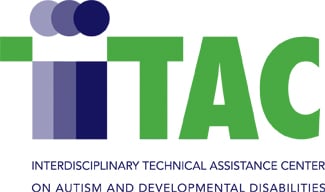September 8, 2015

|
One essential characteristic of a leader is the constant desire to improve, and training programs that prepare students for leadership roles in the field of developmental disabilities are no exception. The nation's 43 Leadership Education in Neurodevelopmental Disabilities (LEND) and 10 Developmental-Behavioral Pediatrics (DBP) Programs provide long-term, graduate level training to over 3,000 students each year, as well as coordinated, interdisciplinary care to children with special health needs. For more than six decades, LENDs and DBPs have played a leading role in advancing our knowledge of and services for people with disabilities and their families as they teach clinical excellence, model inclusion, work across systems to promote quality services, and advance policy, research and practice.
In their most recent progress reports, programs overwhelmingly identified four priority areas for continued improvement where they felt they could make a measureable program or community impact: (1) trainee and faculty diversity, (2) support and inclusion of family members and/or people with disabilities in training, (3) technology in training, and (4) models for in-service training and engaging community professionals.
Federally funded through the Health Resources and Services Administration's Maternal and Child Health Bureau, LENDs and DBPs form a national network under the Association of University Centers on Disabilities (AUCD). In June of 2015, AUCD's Interdisciplinary Technical Assistance Center on Autism and Developmental Disabilities (ITAC) indicated an ability to provide supplementary funding and targeted assistance to programs working to address these identified areas of need as they work to advance their curricula and improve their communities. 13 proposals were received, and after careful review, six programs were selected to receive up to $10,000 in supplemental funding.
- Brown University DBP (Rhode Island Hospital) is improving the training of fellows and residents by enhancing their collaboration with family navigators as partners in care, an important step toward better meeting the unique support needs of children with developmental disabilities and their families.
- Colorado LEND / DBP (University of Colorado School of Medicine) is improving upon its existing telehealth delivery service in an effort to increase the confidence and competence of primary care physicians in managing the care of individuals with autism and related disabilities, creating training opportunities for fellows in both rural consultation and interdisciplinary technical assistance.
- Georgia LEND (Georgia State University) is working with a Universal Design for Learning consultant to develop a program curriculum that is accessible to all learners and that increases the inclusiveness of accommodations which may be provided to support trainees with additional needs, such as those with intellectual or developmental disabilities.
- Illinois LEND (University of Illinois at Chicago) is collaborating with rural primary healthcare professionals and resident physicians in central Illinois to develop a model of in-service training that meets their needs with respect to autism identification, medical supports, and family supports.
- LoneStar LEND (University of Texas Health Science Center at Houston) is revising its current curriculum to support the inclusion of trainees with disabilities, launching a targeted marketing strategy that involves partnerships with local organizations and laying the groundwork for a Community Advisory Board that represents the full range of program stakeholders.
- Washington LEND (University of Washington) is creating sustainable pathways for Self-Advocate Fellow and Faculty tracks through extended training opportunities and the development of dedicated support roles, as well as increased collaboration with state and local organizations.
This is the second consecutive year in which ITAC has supported quality improvement efforts through this mechanism. During the funding period, which ends in June of 2016, AUCD staff will provide individualized assistance to the funded programs and facilitate multiple peer-to-peer learning opportunities. "We saw over the last nine months what programs were able to accomplish with a relatively small amount of money and short implementation time," said Jamie Perry, MD, MPH, AUCD's Director of MCH Technical Assistance. "These six new projects are poised to measurably improve both the training experience and programs' community impact." Perry also anticipates that the resulting curricula, educational models, and other products, as well as the data collected, will offer significant value to the entire network of Maternal and Child Health training programs.
Each of these programs will be reporting on their process and initial outcomes at the AUCD Conference in December of 2016, and at other occasions upon request. For more information, please contact Ben Kaufman, AUCD's Program Manager for MCH Technical Assistance, at (240)821-9461 or [email protected].